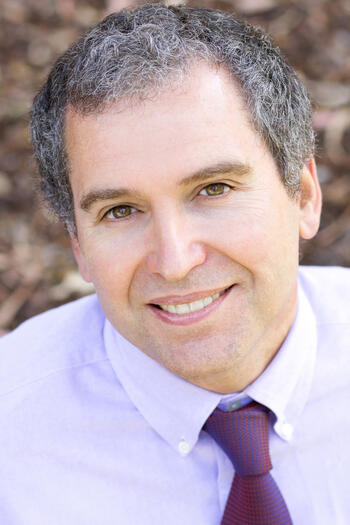About the Event: Toomas Hendrik Ilves, Bernard and Susan Liautaud Distinguished Visiting Fellow, FSI, Visiting Scholar at CISAC, and former President of Republic of Estonia (2006 - 2016), will be interviewed by Michael McFaul, Director of the Freeman Spogli Institute for International Studies (FSI), FSI Senior Fellow, Peter and Helen Bing Senior Fellow at the Hoover Institution, and Professor of Political Science. Audience members will have an opportunity to ask questions after the interview.
About the Guest Speaker: Toomas Hendrik Ilves was born to an Estonian family living in Stockholm, Sweden. He was educated in the United States, receiving a degree from Columbia University in 1976 and a master's degree in psychology from the University of Pennsylvania in 1978.
In 1984 he moved to Munich, Germany, to work at the office of Radio Free Europe, first as a researcher and foreign policy analyst and later as the head of the Estonian Desk.
From 1993 to 1996 Ilves served in Washington as the ambassador of the Republic of Estonia to the United States and Canada. During this time, he launched the Tiger Leap Initiative to computerize and connect all Estonian schools online with Education Minister Jaak Aaviksoo. He then served as minister of foreign affairs from 1996 to 1998. After a brief period as chairman of the North Atlantic Institute in 1998, he was again appointed minister of foreign affairs, serving until 2002.
From 2002 to 2004, Ilves was a member of the Estonian Parliament and in 2004 he was elected a member of the European Parliament, where he was vice-president of the Foreign Affairs Committee. As a MEP, he initiated the Baltic Sea Strategy that was later implemented as official regional policy of the European Union.
Ilves was elected president of the Republic of Estonia in 2006. He was re-elected for a second term in office in 2011.
During his presidency, Ilves has been appointed to serve in several high positions in the field of ICT in the European Union. He served as chairman of the EU Task Force on eHealth from 2011 to 2012 and was chairman of the European Cloud Partnership Steering Board at the invitation of the European Commission from 2012 to 2014. In 2013 he chaired the High-Level Panel on Global Internet Cooperation and Governance Mechanisms convened by ICANN. From 2014 to 2015 Ilves was the co-chair of the advisory panel of the World Bank's World Development Report 2016 "Digital Dividends" and was also the chair of World Economic Forum's Global Agenda Council on Cyber Security beginning in June 2014.
Starting from 2016, Ilves co-chaired The World Economic Forum working group The Global Futures Council on Blockchain Technology. In 2017 he joined Stanford University as a Bernard and Susan Liautaud Visiting Fellow at the Center for International Security and Cooperation in the Freeman Spogli Institute for International Studies.
President Ilves has published many essays and articles in Estonian and English on numerous topics ranging from Estonian language, history, and literature to global foreign and security policy and cyber security. His books include essay collections in Estonian, Finnish, Latvian, Hungarian, and Russian.
His international awards and honorary degrees include Knight of Freedom Award by the Casimir Pulaski Foundation (2016), the Aspen Prague Award by the Aspen Institute (2015), the Freedom Award by the Atlantic Council (2014) and the NDI Democracy Award by the National Democratic Institute (2013). His Honorary Degrees include an Honorary Degree from St. Olaf College, US (2014), an Honorary Degree from the John Paul II Catholic University of Lublin, Poland (2010), and an Honorary Degree from Tbilisi University, Georgia (2007).


